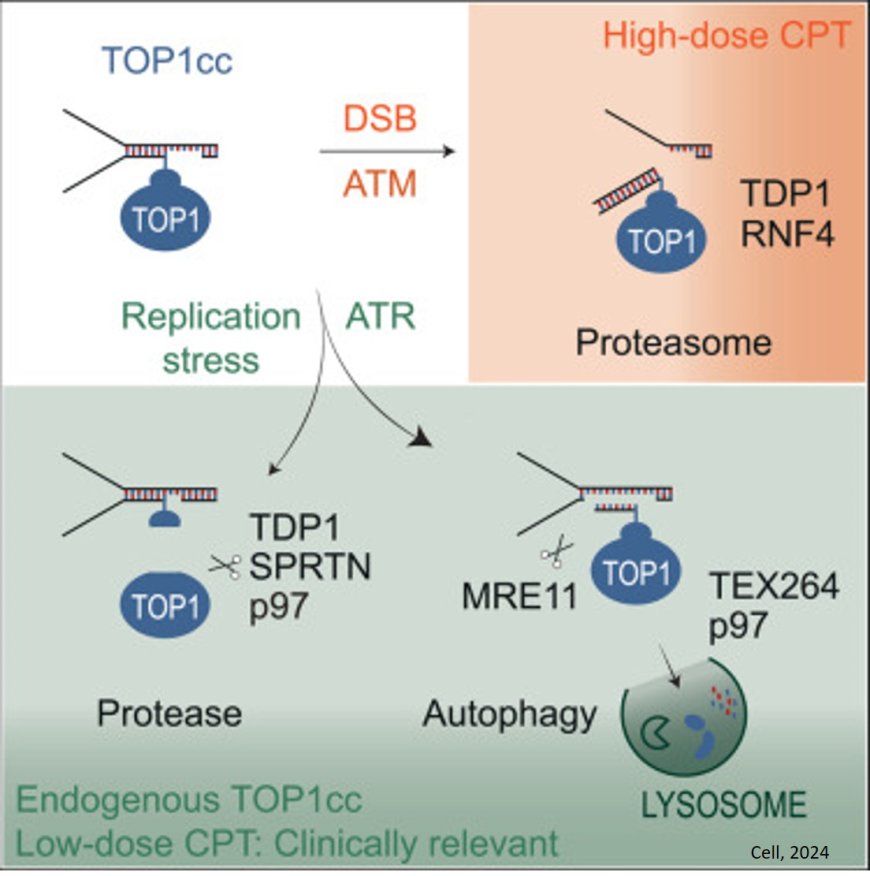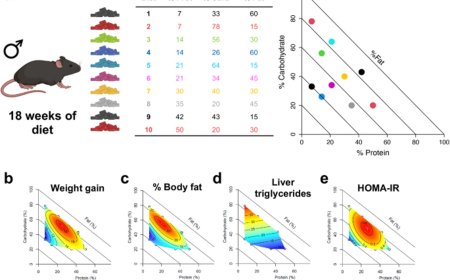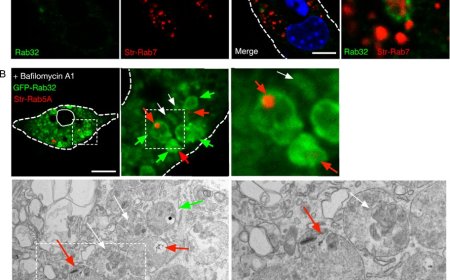New process for cells to repair DNA damage

A team of international researchers has discovered a new process for repairing damaged DNA that is particularly relevant for patients undergoing colorectal cancer treatments.
Reporting their finding in Cell, the researchers describe a new process in DNA repair in which cells remove harmful DNA-protein lesions from a cell’s nucleus, ensuring the stability of their genetic material and promoting cell survival. The team calls this new process nucleophagy.
Nucleophagy is a natural cellular cleaning mechanism known as autophagy that is essential for repairing DNA and ensuring cell survival. It involves a commonly expressed protein called TEX264.
In a patient receiving chemotherapy for colorectal cancer, the drugs cause DNA lesions to form. In response, the body expresses TEX264, which activates the nucleophagy process, guiding the lesions to the cell’s waste disposal system, where they are broken down and destroyed.
The research team used advanced techniques, including biochemical, cell biological and bioinformatics tools, zebrafish animal model and colorectal cancer patient materials, to confirm that nucleophagy is crucial for repairing damaged DNA.
This study provides insights into a new pathway for cells to repair DNA damage, which could improve cancer treatments and lead to better outcomes for patients in future, says the research team, which comprises scientists and clinicians.
Lead investigator said, “While autophagy is known to be associated with DNA repair, there has been no evidence of its direct role in the repair of DNA lesions until now.”
In particular, the research team says the findings are significant for patients with colorectal cancer – the second leading cause of cancer-related deaths worldwide, according to the World Health Organisation.
An analysis of colorectal cancer patients treated with Topoisomerase 1 inhibitors, such as FOLFIRI therapy (a common chemotherapy used to treat colorectal cancer), showed that patients with high levels of TEX264 in their tumors have a 50 per cent better response to treatment compared to those with low levels of TEX264.
First author of the study said, “This novel mechanism of DNA damage repair helps us comprehend how our cells maintain genetic integrity and respond to cancer treatments. This breakthrough opens avenues for a better understanding of how our body protects genetic material and how we can enhance the efficacy of cancer therapies for patients. I believe that modulating autophagy activity is the key to overcoming resistance to therapy in colorectal cancer.”
An independent expert, said, “Prof Ramadan and his international research team made a fascinating breakthrough discovery called nucleophagy, which could be a game-changer for more than just colorectal cancer patients. Some cancer treatments, like camptothecin and its variations, are already used to treat cancers like bowel, pancreas, ovarian, breast, and certain types of lung cancers. This new finding could help doctors better understand why some cancers resist treatment and pave the way for more effective therapies in the future.”
In future studies, the research team will explore the role of nucleophagy in the body’s response to chemotherapeutic drugs for other cancers, to see if their discovery is further validated. The team’s ultimate goal is to use this discovery to improve current chemotherapy responses for cancer patients.













